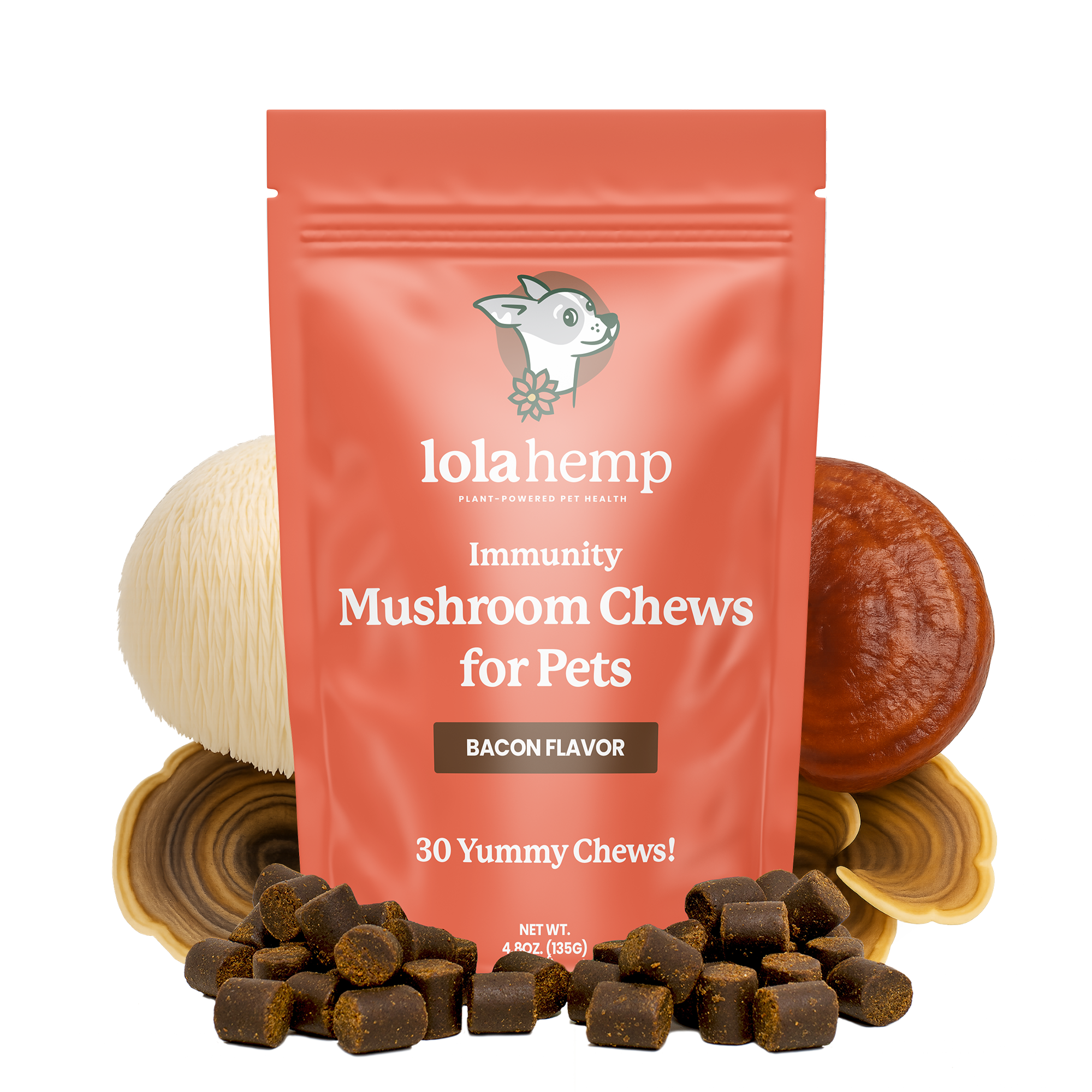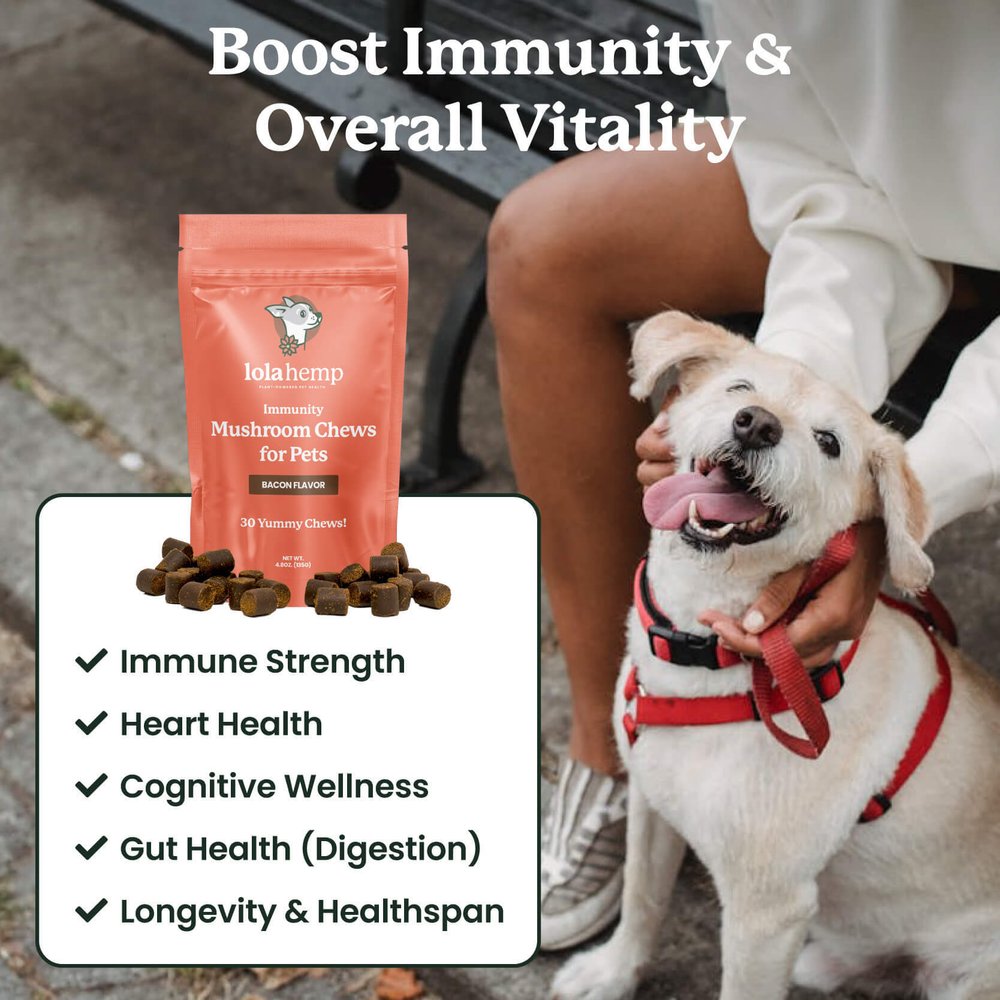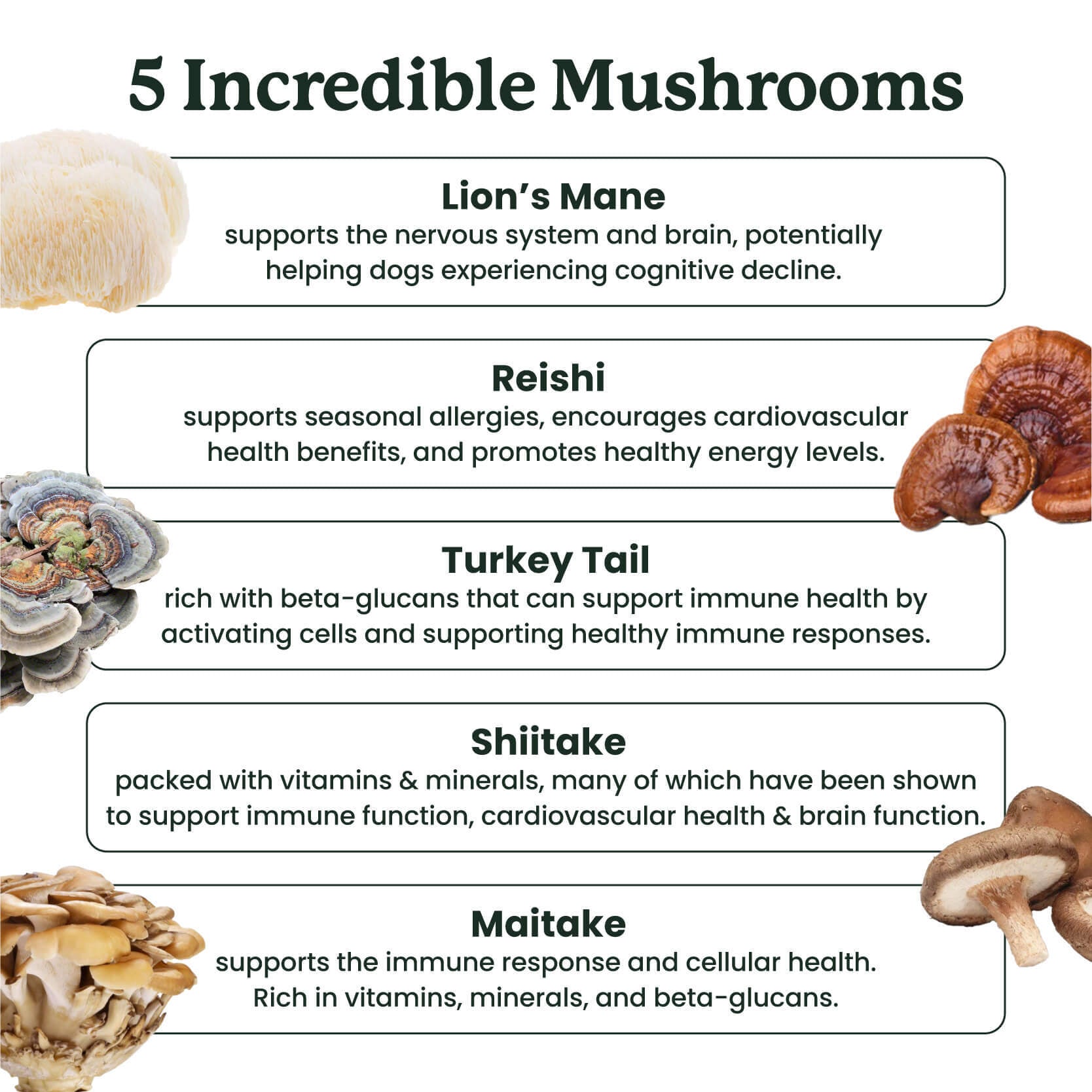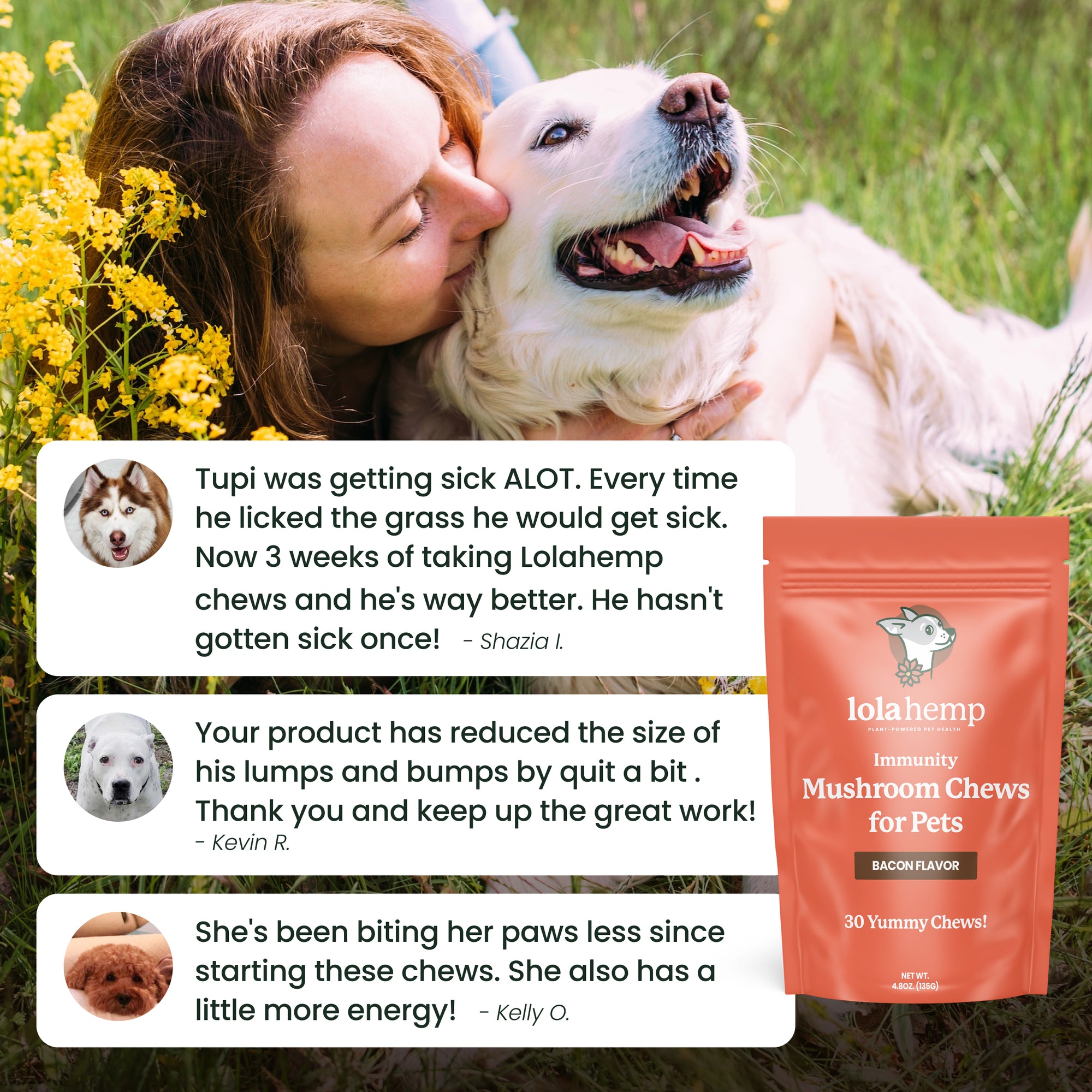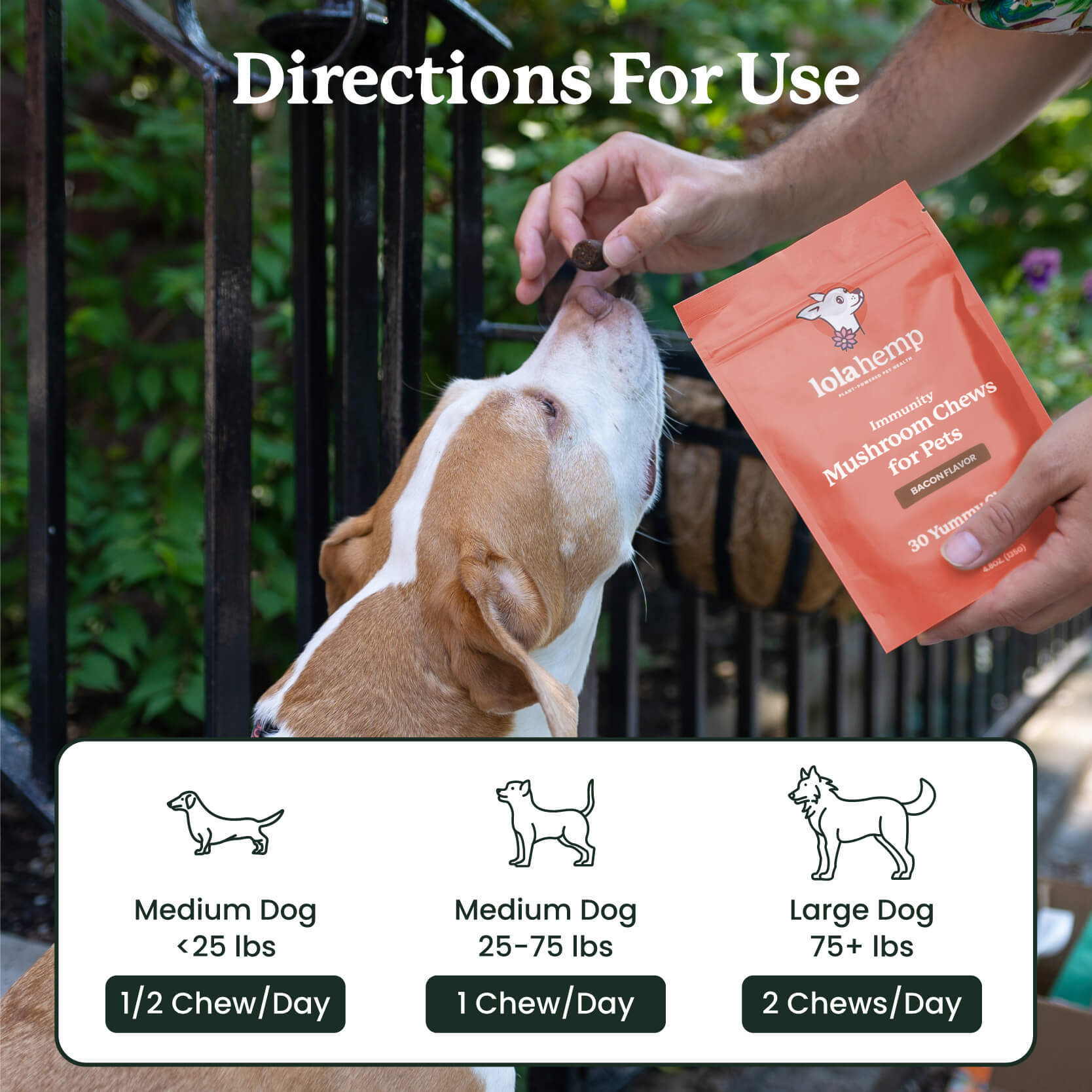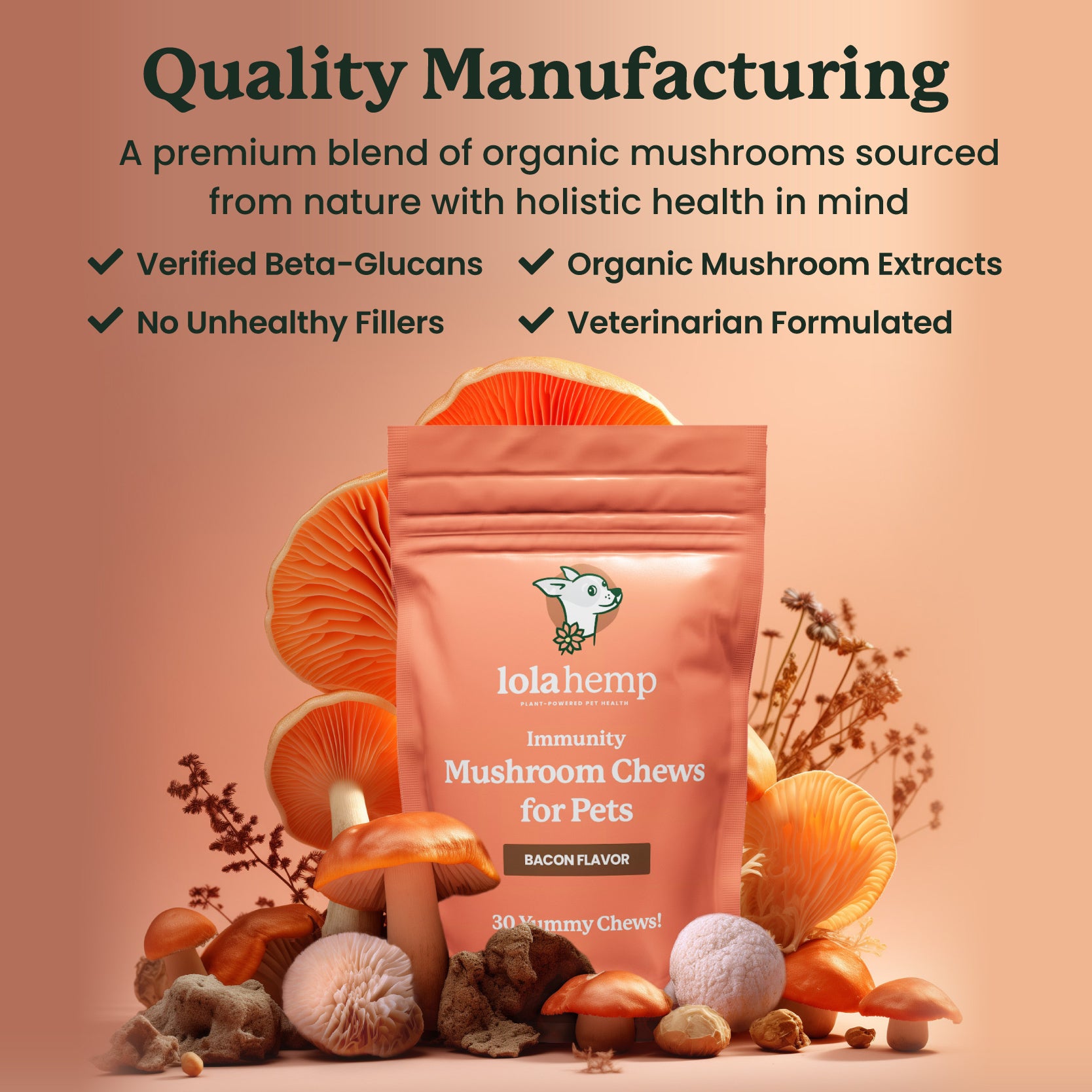Shiitake mushrooms are one of the many medicinal mushrooms that have been improving human health for centuries, particularly in East Asian cultures. However, their use in canine health is a more recent development.
It's a journey that began in the late 20th century when holistic veterinarians started exploring natural supplements like mushrooms for dogs. Shiitake mushrooms for dogs offer a handful of potential benefits, and we'll discuss everything in detail below.
Shiitake Mushroom Benefits for Dogs
| 7 Key Benefits |
|---|
1. Immune System SupportShiitake mushrooms may help support your dog’s immune system. The lentinan and beta-glucans in shiitake mushrooms can potentially stimulate immune cells and activate natural killer cells, helping your dog fight infections. Additionally, the antioxidants in shiitake mushrooms might protect immune cells from oxidative damage. For dogs with a weaker immune system, shiitake mushrooms could serve as a helpful supplement for immune support. |
2. Digestive HealthThe prebiotics in shiitake mushrooms may promote the growth of beneficial gut bacteria. Regular inclusion of these mushrooms can help reduce diarrhea, thanks to their fiber content. Shiitake mushrooms may also assist in breaking down food proteins, potentially reducing gas and bloating. Furthermore, the antioxidants present can help maintain gut health by protecting against oxidative stress. |
3. Heart and CirculationShiitake mushrooms might contribute to your dog’s cardiovascular health. They are low in calories and may support heart function. While they could help with cholesterol and blood pressure, it's important to approach these claims with caution. Nutrients like potassium and iron found in shiitake mushrooms may assist blood flow and heart health, but results may vary between dogs. |
4. Liver SupportThe antioxidants in shiitake mushrooms may help support liver health by protecting liver cells from damage. With veterinary guidance, they can be considered as a supplementary option to support liver function, inflammation response, and overall liver health. However, it’s important to consult with a veterinarian before using shiitake mushrooms for specific liver conditions. |
5. Weight ManagementFor dogs needing to manage their weight, shiitake mushrooms can serve as a low-calorie alternative to higher-calorie treats. Their fiber content helps dogs feel full, potentially assisting with weight management. However, shiitake mushrooms should not be relied upon as the sole solution for weight loss. |
6. Skin and Coat HealthShiitake mushrooms may support skin and coat health through their B vitamins and minerals. The antioxidants they contain may protect the skin from oxidative damage. While shiitake mushrooms could help with overall skin health, specific improvements like reduced itching or redness cannot be guaranteed. |
7. Energy and VitalityShiitake mushrooms may enhance your dog’s energy levels and overall vitality. The amino acids in shiitake mushrooms can support muscle tissue and general health, contributing to recovery after physical activity. Their adaptogenic properties may also help your dog better manage stress, though individual responses may vary. |

Shiitake Mushroom Supplements for Dogs
The safest way to introduce shiitake mushrooms to your dog's diet is via mushroom supplements that are vet-formulated for canine use. Giving dogs raw mushrooms is typically a bad idea, and finding safe powders or tinctures can be a challenge.
That's why mushroom supplements are a preferable alternative. Additionally, these supplements are created to be delicious and beneficial to dogs, so there's no struggle getting them to take their daily dose.
Potential Side Effects
Your dog can't say "Hey, these mushrooms aren't sitting right," so you've got to be their voice. Monitor for any tummy troubles. We're talking gurgling, extra gas, or loose stools. Some dogs might get a bit itchy or develop a rash.
Excessive drooling or lip-smacking? That's another sign that you need to ease up. And if your normally energetic fur ball suddenly becomes a couch potato, take note. These are all ways your dog might be saying, "Whoa there, human. This shiitake situation isn't working for me."
Conclusion
Shiitake mushrooms have a range of benefits from immune function to overall wellness and energy for dogs. It can be a challenge to find an easy way to give your dog safe shiitake mushrooms on a regular basis, which is why mushroom supplements like Lolahemp's Immunity Mushroom Chews are so beneficial.
Shiitake Mushrooms for Dogs – Frequently Asked Questions
Can dogs eat shiitake mushrooms?
Dogs can eat shiitake mushrooms when they are prepared properly and given in supplement form. Raw mushrooms are not recommended.
Are shiitake mushrooms safe for dogs?
Shiitake mushrooms are generally safe for dogs when given as a vet-formulated supplement. Monitor for digestive upset or allergic reactions.
What are the benefits of shiitake mushrooms for dogs?
Shiitake mushrooms may support immune health, digestion, skin and coat health, energy, and overall wellness.
How should I give shiitake mushrooms to my dog?
The safest method is through dog-specific mushroom supplements rather than raw or cooked mushrooms.

